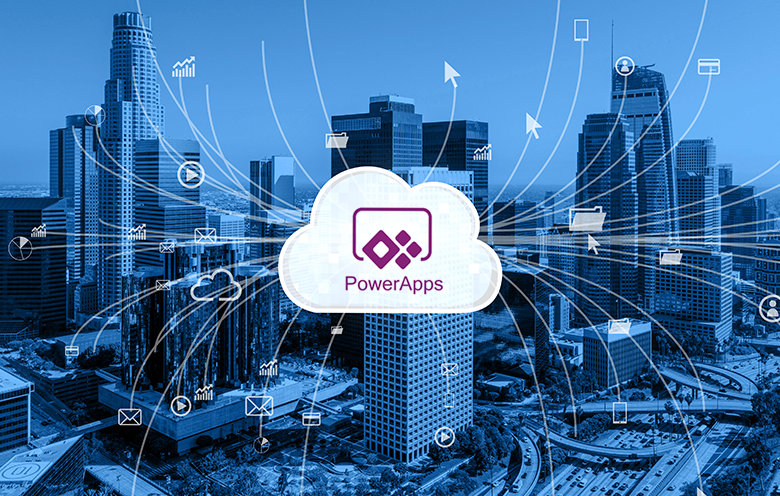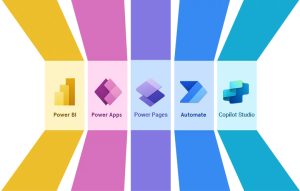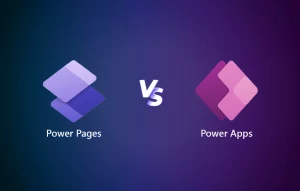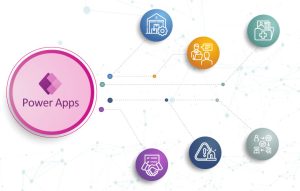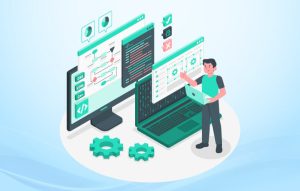Over the past two years, most organizations have undergone app modernization to drive innovation. However, many enterprises across the globe are still thinking or are in the nascent stage of their app modernization journey. But the question is: What is an efficient way of modernizing your legacy apps, or how would you take your apps to the cloud? The answer is Microsoft Power Apps.
Power Apps foster organizations to unleash digital transformation and enable them to move their legacy apps to the cloud. App modernization no longer remains a time-consuming, complicated process. Backed by sophisticated technologies like artificial intelligence, Power Apps can help you move obsolete apps to the modern, scalable and secure cloud platform. In this blog, we will walk you through the process of modernizing legacy .NET apps using Power Apps development.
But before diving into legacy app modernization, let us look at some of the modern-day challenges of legacy .NET applications.
Challenges of legacy .NET applications
Working with legacy .NET applications is quite challenging in today’s changing business landscape. Organizations having monolithic architecture may encounter several hardships related to legacy apps, such as:
- Intricate interdependencies, resulting in drawn-out release and test cycles
- Lack of agility and poor performance, bringing on unsatisfactory customer experiences
- Obsolete technologies drawing on difficulties in maintaining and scaling legacy apps
- Lack of knowledge to implement security best practices, giving rise to cybersecurity risks
- Excess expenditure for maintaining outdated infrastructure, systems, or apps
Why modernize legacy applications
Change is the only constant. As the world is getting introduced to new technologies every day, old technologies have started becoming outdated. Hence, in today’s digital world, businesses cannot stick with their monolithic systems.
Modern enterprises can advance their applications or systems by adopting digital transformation to stay competitive. Some of the reasons why companies must modernize their underlying infrastructure and apps include:
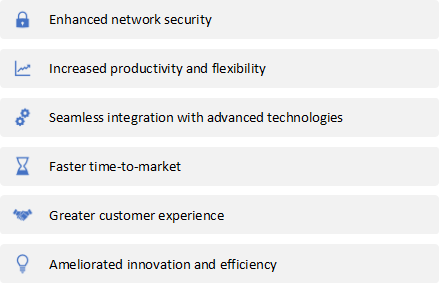
How legacy .NET apps can be modernized with PowerApps
No matter when you have created, purchased, or last updated your legacy apps, Microsoft Power Apps development can modernize legacy applications seamlessly and effectively. For a successful cloud modernization with Power Apps, consider the following approach.
1. Access the existing technology stack
The first step to app modernization is to conduct an extensive audit of the existing applications and related infrastructure. This will assist you in knowing whether the app that you want to take to the cloud is worth modernizing or not. It will not only aid you in forming a base for your migration approach but also help you know which system/app no longer adds value to your business. There are several aspects to accessing legacy systems, including:
- Source code – Access the code to identify errors and check its compatibility with new tools, technologies, or platforms.
- User interfaces – Audit the UI/UX of your legacy apps to ensure their seamless migration to the cloud with no changes.
- Architecture – Look over your monolithic apps’ components and high-level architecture to recognize any blockages.
2. Choose the right migration approach
The second step to successful legacy app modernization with the help of Power Apps is to select the right cloud migration approach. The determining factors for a robust Power Apps modernization strategy include potential operational needs and current and anticipated workloads. Also, the migration strategy differs depending on the organization’s structure and business case.
- Phased approach – With this approach, you can migrate your on-premises app workloads to the cloud in small, multiple phases during a certain period. This approach is well suited when you have several business departments and massive migration projects.
- Big bang approach – It is basically a lift-and-shift approach with which you can migrate your entire legacy app to the cloud in one go. The time taken to shift your workloads to cloud will be comparatively less. This approach is well suited for smaller, simple projects.
3. Install the on-premises data gateway
To shift all your on-premises data to the cloud using Power Apps, you must first install an on-premises data gateway tool. But before installing this gateway tool, you must once check with your security team if they are inclined towards granting access to Microsoft for the same. As this tool will directly make some queries regarding a few of your databases from your on-premises infrastructure, you need to keep your network security team in the loop.
After installing the gateway tool, you must browse the Power Apps site and register with your Office 365 account. Once you do this, go to Settings to choose from different gateways. However, you will require to provide the following details during the installation process:
- Recovery key
- Account to utilize for accessing
- A unique gateway name
Benefits of modernizing apps with PowerApps
Microsoft Power Apps is a cloud-based, low-code app development platform that can help you modernize your legacy apps. The time taken to develop apps with Power Apps reduces significantly. Moreover, it is an easy-to-use interface that can help you reap the following advantages:
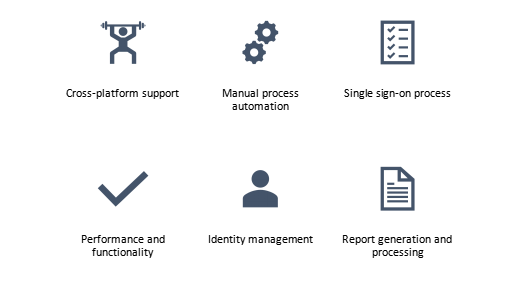
To know how legacy app modernization can help your business drive value, read our blog on rebuilding legacy applications with app modernization.
Modernize apps with Power Apps!
Modern businesses are focused on delivering innovative customer experiences. Hence, to meet the modern needs of customers, they are turning towards the modernization of legacy .NET apps. Organizations today are embracing the lift-and-shift approach to move their apps to the cloud using Microsoft Power Apps. It enables companies to migrate their legacy apps in a shorter time and scale it up or down easily. If you are also seeking an opportunity for your .NET legacy application migration, our team of experts can help you leverage the benefits of the cloud.


